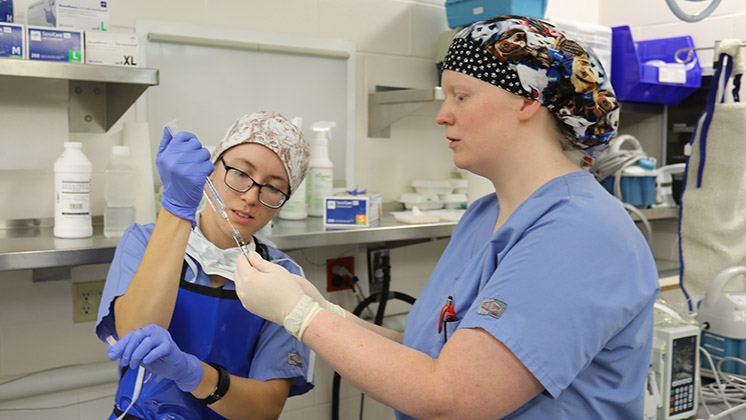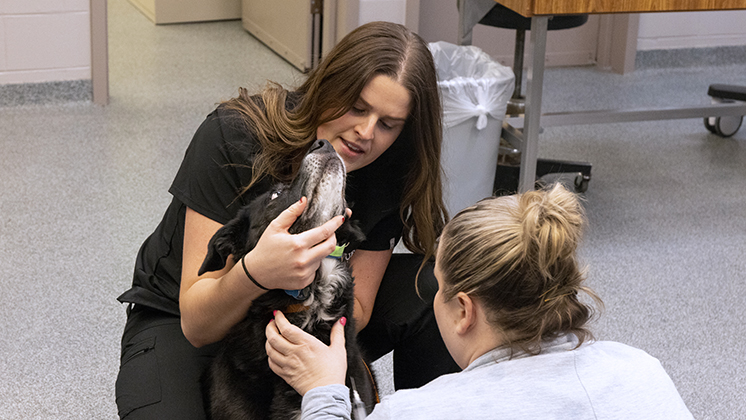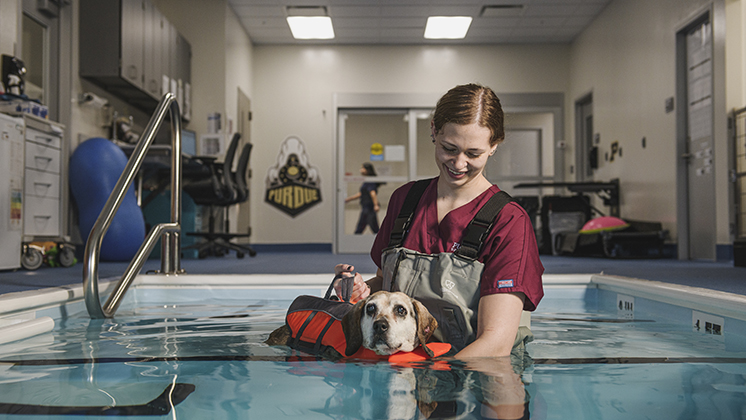
by Kelsey Wirt, MS, LVT and Josh L. Clark, MS, RVT
One of the realities of pursuing higher education is the potential accumulation of student loan debt. If you're planning to attend a vet tech school, you may wonder, "How long does it take to pay off vet tech school debt?" The answer depends on several factors, including the total amount of debt, your repayment plan, and your income after graduation.
The cost of vet tech school tuition varies widely, depending on whether you attend a public or private institution. Some typical expenses that you have to consider are whether you're an in-state or out-of-state student, the time it requires you to complete the program, textbooks/supplies, and living expenses. On the flip side, students can also earn financial assistance through federal aid, grants, and scholarships. According to the U.S. Department of Education, the average debt for an associate degree, like a vet tech degree, is around $20,000.
Read more about the cost to go to vet tech school in the United States.
After graduation, your repayment plan will be based on the type of funding used to pay for your expenses. Standard repayment plans for federal student loans set the repayment period at 10 years. However, there are various repayment options available that can extend this period to 20-25 years, such as income-driven repayment plans. These plans adjust your monthly payment based on your income and family size. Keep in mind that the funds received through scholarships and grants don’t typically have to be paid back like loans do.
The time it takes to pay off vet tech school debt also depends on your income after graduation. The Bureau of Labor Statistics reported the median annual wage for vet techs in the U.S. as of May 2023 was about $43,740. However, wages can vary depending on your location, work setting, and level of experience.
The length of time it takes to pay off vet tech school debt can vary significantly based on the total amount borrowed, the chosen repayment plan, and your post-graduation income. It is always a good idea to seek advice from a financial counselor or student loan servicer to understand the best repayment strategy for your circumstances. Remember, investing in your education is a significant decision, and understanding the financial implications is a crucial part of that decision.
Find your calling as a Purdue Veterinary Nurse!
Not quite ready to apply? Connect with us to learn more.

Discover strategies for academic success in veterinary technology at Purdue. From attending classes and organizing your time to leveraging Purdue Vet Med's resources, we're dedicated to supporting your journey. Dive into our tips for effective studying, hands-on practice, and wellness, ensuring a prosperous career ahead.
Read more
Becoming a veterinary technician requires several steps, each of which takes a certain amount of time. Let's explore the journey and timeline for aspiring vet techs.
Read more
Explore the detailed requirements for becoming a vet tech. Learn the importance of a degree, the nuances of credentialing, and the distinct state regulations. Can you become a vet tech without formal education? Discover the advantages and limitations of each pathway.
Read more